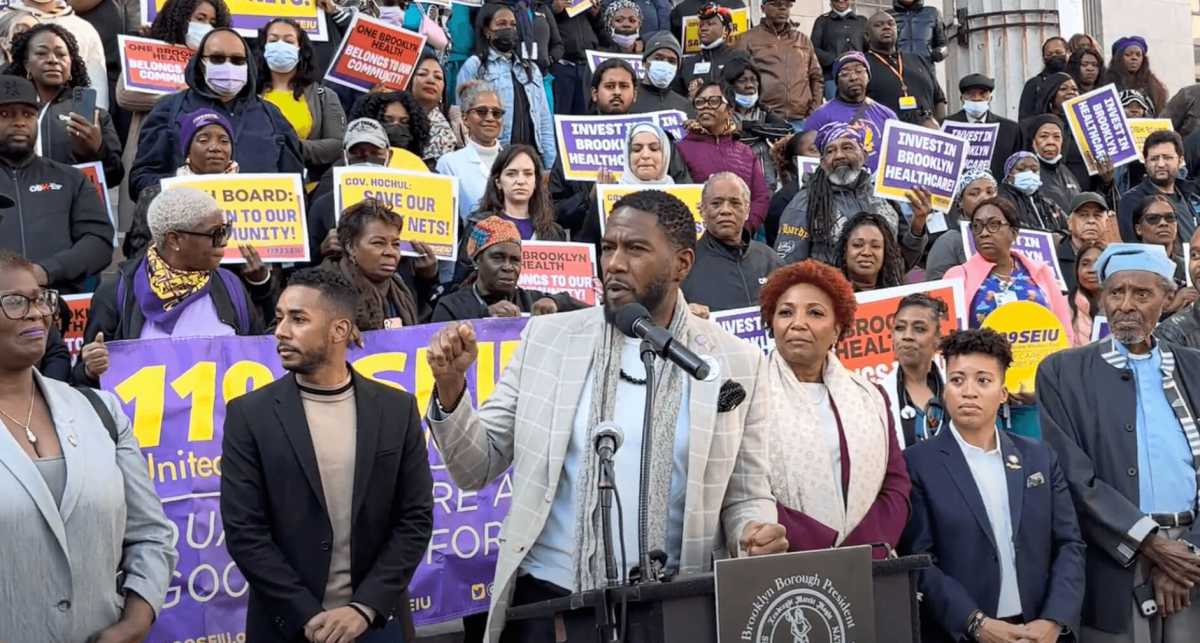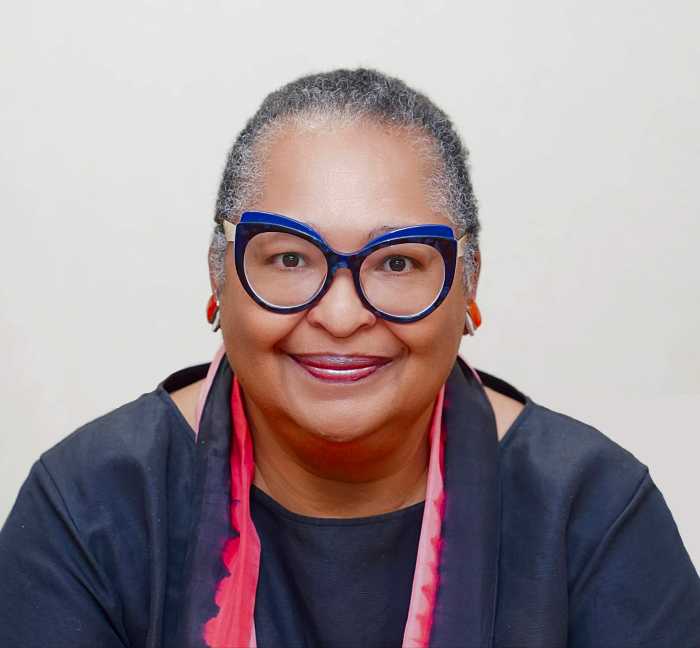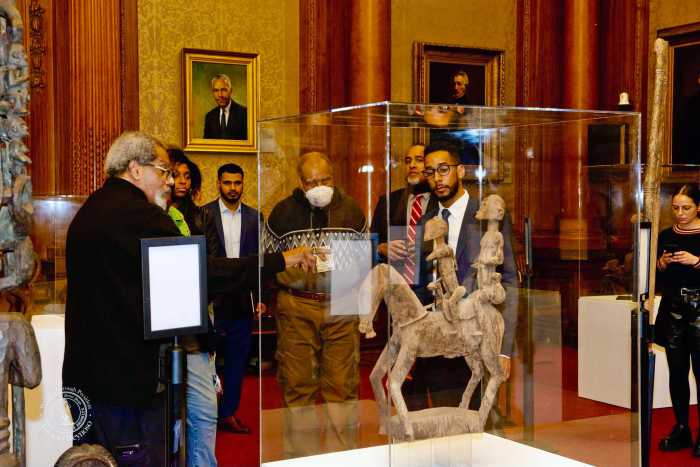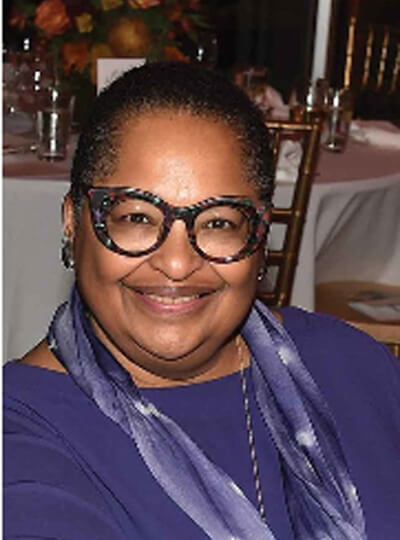Healthcare workers, union members, and elected officials demanded the state review leadership at One Brooklyn Health System after its former CEO LaRay Brown was suddenly removed from her position last month.
Advocates said Brown’s removal was led by Alexander Rovt, the chairperson of the One Brooklyn Health Board of Directors and a real estate investor and political donor.
On Sept. 27, members of 1199SEIU rallied on the steps of Brooklyn Borough Hall with city leaders including Public Advocate Jumaane D. Williams and Brooklyn Borough President Antonio Reynoso to call out what they said was a lack of communication from OBH leaders.
Brown had been leading the healthcare network since 2017. OBH includes Brookdale University Hospital Medical Center, Interfaith Medical Center, and Kingsbrook Jewish Medical Center. All three are “safety net” hospitals that serve primarily neighborhoods of color in central and eastern Brooklyn.
“One Brooklyn Health was built on transparency and collaboration, yet the Board’s approach to LaRay Brown’s removal flies in the face of OBH’s foundational values,” Reynoso said the rally. “The healthcare workers who deliver on OBH’s vision of a healthy Brooklyn deserve transparency, accountability, and a say in who is at the system’s helm – as do the people the system serves.”
Protestors said Rovt removed Brown from her position without consulting with labor partners or the communities OBH serves — and claimed that the change threatened to “destabilize” the care OBH provides.
George Gresham, president of 1199SEIU, called on Governor Kathy Hochul to aid in holding the OBH board accountable to patients, community members and workers.
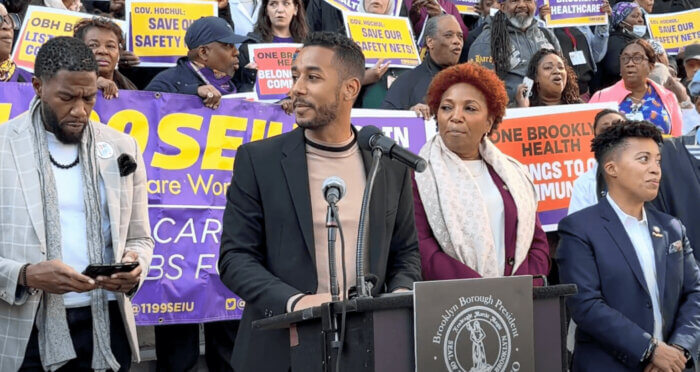
“We demand that Governor Hochul ensure proper oversight, reform the board, and make real investments in safety-net institutions to ensure that all Brooklyn residents have access to the quality healthcare they deserve,” Gresham said in a statement.
Gresham and other supporters at the rally urged Hochul to work with the Attorney General’s office to restructure the board at OBH “to ensure proper representation and adherence to proper governance procedures.”
The group also want Hochul to support an independent review of goals set for OBH by the state, and demanded a “thorough review” of the current and executive leadership team at OBH.
“Healthcare is a human right. Our healthcare infrastructure should be run with community input and not controlled by the interests of the ultra-rich,” said state Sen. Jabari Brisport.
One Brooklyn Health did not return multiple requests for comment.
Interfaith, Kingsbrook, and Brookdale came together to create OBH in 2016 in an effort to “preserve and enhance health care services in the communities of Central Brooklyn,” according to the organization’s website. In 2018, as part of the Vital Brooklyn Initiative, OBH received a whopping $664 million investment from the state to fund capital improvements, new programs, and more.
Safety-net hospitals like Interfaith and Brookdale primarily serve who are uninsured or insured by Medicaid or Medicare — meaning they receive smaller reimbursements from insurance companies and often struggle to cover costs. According to OBH’s most recent community service plan, the neighborhoods the healthcare network serves suffer from higher-than-average rates of HIV, obesity, diabetes, and hypertension, and have lower-than-average life expectancies.
Rallygoers further demanded that Hochul expedite ongoing improvements at OBH properties and use the annual state budget to address chronic underfunding of safety-net hospitals in order to “end structural inequities and build long-term sustainability to serve vulnerable communities.”
“Under LaRay Brown’s leadership, One Brooklyn Health addressed systemic social determinants of healthcare as part of Central Brooklyn’s vital safety-net hospital system,” said Assembly Member Brian Cunningham. “Her dedication and service to Brooklyn communities have certainly earned her due process, and I echo my elected colleagues’ calls for thorough oversight by the State of New York.”


